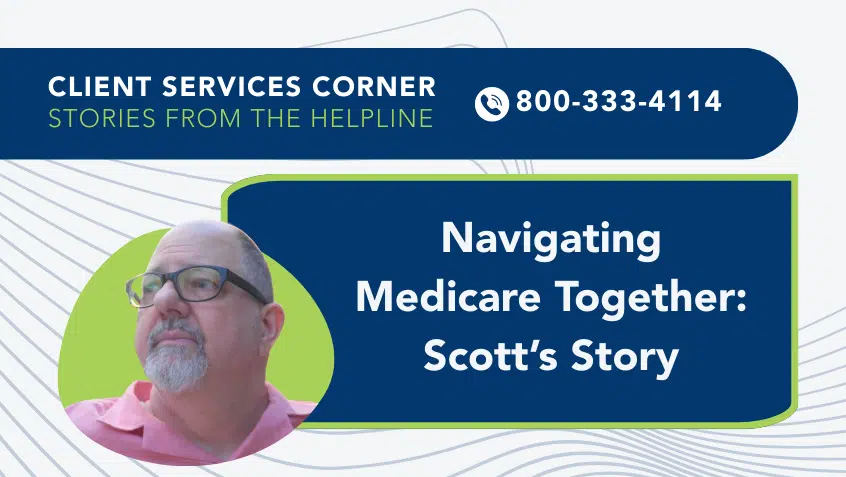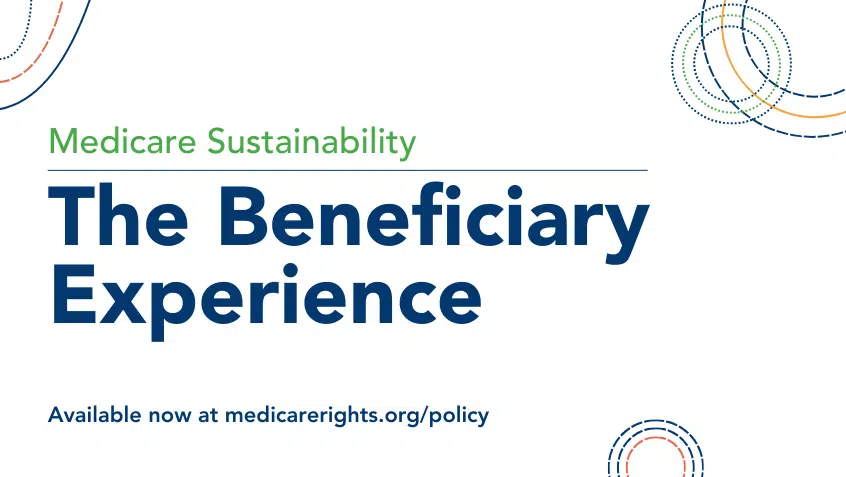Join Us Live for a Discussion on Medicare, Democracy, and the Future of Health Care
Medicare Rights Center Speaks at Public Forum on Part B Medications

Earlier this week, the Medicare Rights Center participated in a panel discussion at a public forum convened by the Pew Charitable Trusts on a proposal by the Centers for Medicare & Medicaid Services (CMS) to test new ways to pay for Medicare Part B prescription drugs. Other panelists included experts on prescription drugs, pharmaceutical makers, and clinical oncologists. The discussion focused on the panelists’ views of the potential merits and downsides of the CMS proposal.
As we have written previously, through the proposed test, CMS aims to improve health care quality and enhance value for people with Medicare who take Part B medications. During the panel, we shared that lack of affordability is a common theme heard on our national helpline, affecting nearly 1 in 5 callers. Sky-high cost sharing for Part B prescription drugs is a persistent concern, most often for cancer and immunosuppressant medications. Many of these cases involve people who lack adequate supplemental coverage, exposing them to a 20% Part B coinsurance in Original Medicare. These callers often have incomes too high to qualify for federal programs to help cover medical costs, but too low to afford needed health care.
This experience informs our support for the proposed payment model. Under the CMS plan, payment incentives would be adjusted to encourage health care providers to prescribe the most clinically effective treatments, as opposed to the most costly ones. In addition, CMS would test strategies that eliminate or lower cost sharing for high-value medications, promote tools that help clinicians make evidence-based treatment decisions, and more.
Because doctors can continue to prescribe according to a patient’s individual medical needs, we are confident that beneficiaries will retain access to a range of treatment options under the proposed test. During the panel discussion, valid concerns were raised about the need to preserve beneficiary access to high-cost medications, particularly in community-based and rural health care settings. We believe that CMS can and should closely monitor access to Part B prescription drugs in these settings (and in all settings) as testing moves forward.
While there are important concerns with the CMS proposal that should be addressed, there is also real potential that beneficiaries who would otherwise go without costly medications will now be able to access those treatments. For this reason alone, it is critically important that CMS move forward with its proposal. Medicare Rights will submit detailed comments, including suggested improvements, on how to carry out the proposed program and we expect to stay engaged as the model is implemented.
Watch the public forum:
Read our letter on the Part B proposal:
Show Comments
We welcome thoughtful, respectful discussion on our website. To maintain a safe and constructive environment, comments that include profanity or violent, threatening language will be hidden. We may ban commentors who repeatedly cross these guidelines.
Help Us Protect & Strengthen Medicare
Donate today and make a lasting impact
More than 67 million people rely on Medicare—but many still face barriers to the care they need. With your support, we provide free, unbiased help to people navigating Medicare and work across the country with federal and state advocates to protect Medicare’s future and address the needs of those it serves.
The Latest
Most Read
Add Medicare to Your Inbox
Sign up to receive Medicare news, policy developments, and other useful updates from the Medicare Rights.
View this profile on InstagramMedicare Rights Center (@medicarerights) • Instagram photos and videos









